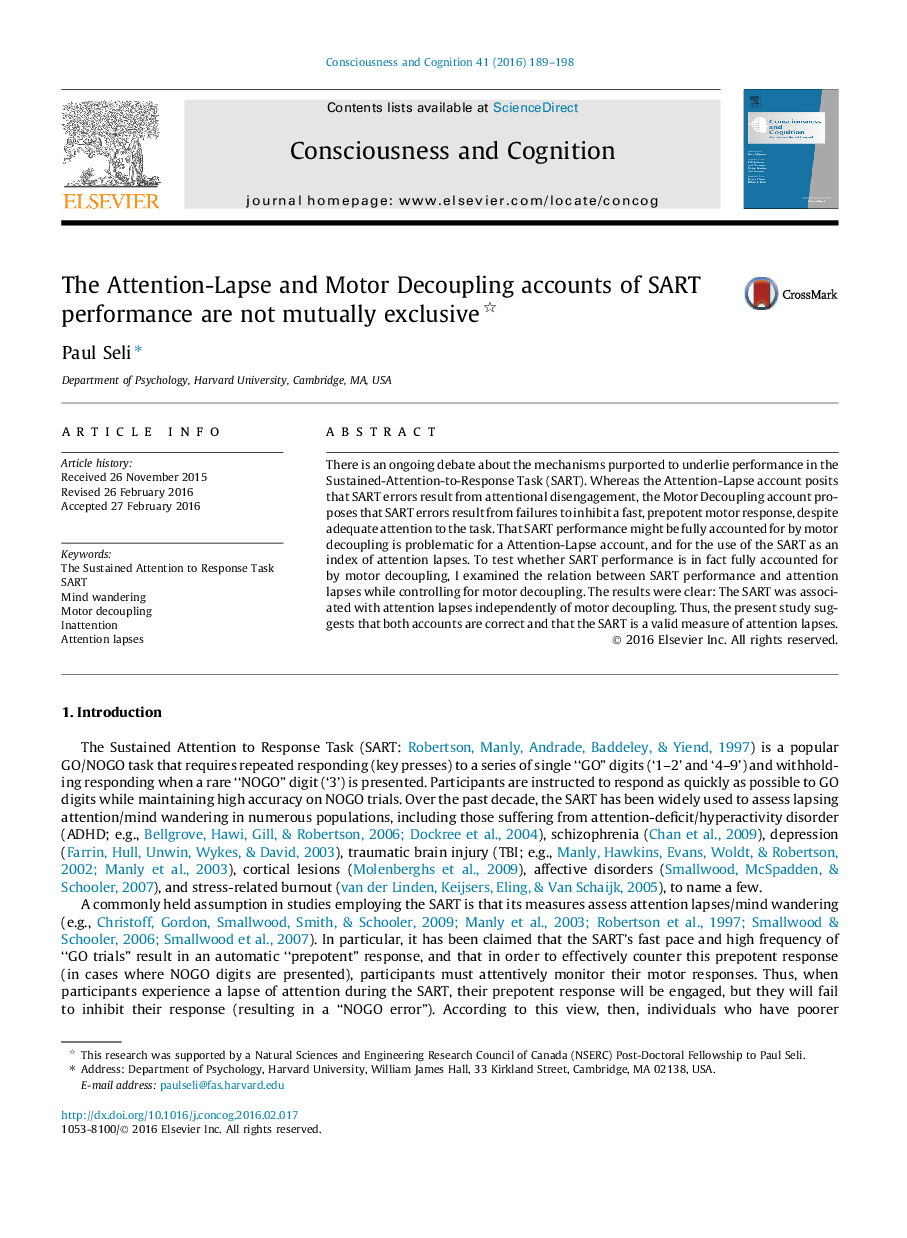| Article ID | Journal | Published Year | Pages | File Type |
|---|---|---|---|---|
| 7288691 | Consciousness and Cognition | 2016 | 10 Pages |
Abstract
There is an ongoing debate about the mechanisms purported to underlie performance in the Sustained-Attention-to-Response Task (SART). Whereas the Attention-Lapse account posits that SART errors result from attentional disengagement, the Motor Decoupling account proposes that SART errors result from failures to inhibit a fast, prepotent motor response, despite adequate attention to the task. That SART performance might be fully accounted for by motor decoupling is problematic for a Attention-Lapse account, and for the use of the SART as an index of attention lapses. To test whether SART performance is in fact fully accounted for by motor decoupling, I examined the relation between SART performance and attention lapses while controlling for motor decoupling. The results were clear: The SART was associated with attention lapses independently of motor decoupling. Thus, the present study suggests that both accounts are correct and that the SART is a valid measure of attention lapses.
Related Topics
Life Sciences
Neuroscience
Cognitive Neuroscience
Authors
Paul Seli,
